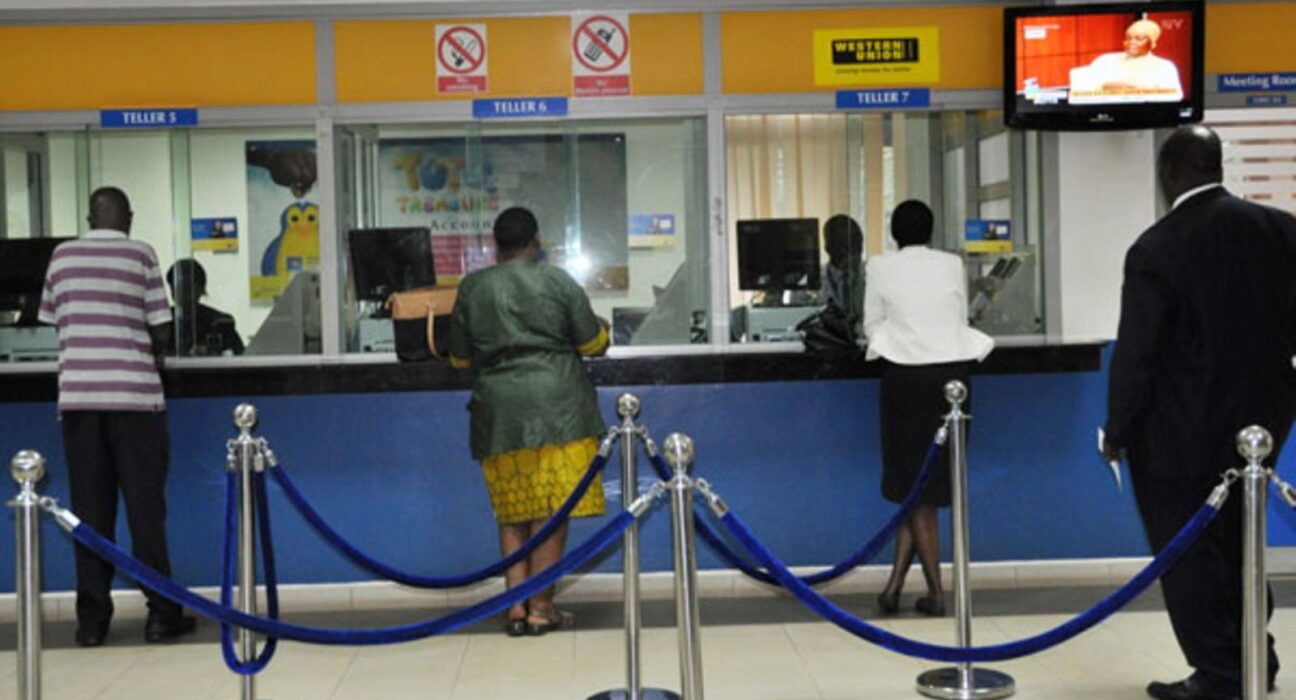Welcome to our comprehensive guide on banks in Uganda. In this article, we will take you on a journey through the intricate financial landscape of Uganda, shedding light on key banking institutions, services, and regulations. Whether you’re an investor, a curious learner, or a prospective customer, this guide is designed to provide valuable insights that will help you navigate and understand the dynamic world of banking in Uganda.
Bank of Uganda
Established on 1 July 1966 and became fully operational on 15 August 1966, under the Bank of Uganda (BOU) Act 1966, BOU is the central bank of Uganda. The bank is responsible for setting the central bank rate and regulates all the other financial institutions. The bank is wholly owned by the government but is not a government department but it is not a government Department. Bank of Uganda conducts all its activities in close association with the Ministry of Finance, Planning and Economic Development (MoFPED). BOU is responsible for the formulation and implementation of monetary policy as well as regulating & supervising financial institutions. The overall management of the Bank is over seen by a Board of Directors appointed by the President of the Republic of Uganda. BOU is responsible for monetary policy and maintaining price stability.
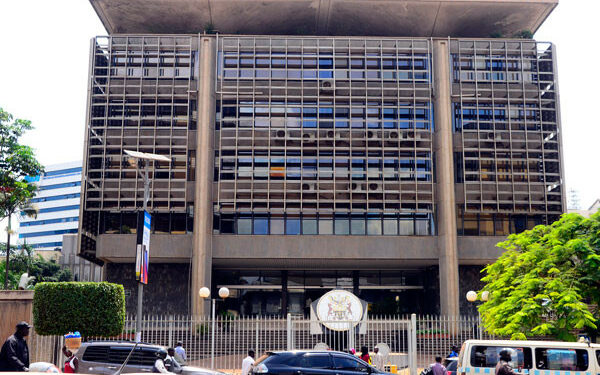
ABC Capital Bank
ABC Capital Bank, whose full name is ABC Capital Bank Uganda Limited, started its journey in 1993, as a Micro Finance Institution trading as Capital Finance Corporation Limited (CFC Ltd), licensed and supervised by Bank of Uganda under the Financial Institutions Act 2004, Capital Finance. ABC Capital Bank is now a fully owned subsidiary of African Banking Corporation and regulated by Bank of Uganda. In 2017, the Bank changed the Core Banking System to Finacle 10, one of the most robust core banking systems in the world. This has enabled the bank to offer customers a wide range of banking solutions; some of which tailor made to the customer’s needs.
The bank provides banking services to large corporations, small-to-medium-sized businesses (SMEs), as well as individuals. As of December 2020, the bank’s total assets were valued at about UGX 62.14 billion, with shareholders’ equity of about UGX 28.837 billion.
Bank of Africa
Bank of Africa Group (BOA) is a multinational pan-African banking conglomerate with banking operations in eighteen African countries, and a representative office in Paris, France. With over 30 branches around the country, the bank provides full range banking products and services to large corporate companies, retail clientele, as well as Small and Medium Enterprises. As of December 2019, BOA Uganda was a medium-sized financial services provider, with total assets of UGX 803.07 billion (approximately US$218.25 million), with shareholders’ equity of UGX 123.54 billion (approximately US$33.58 million).
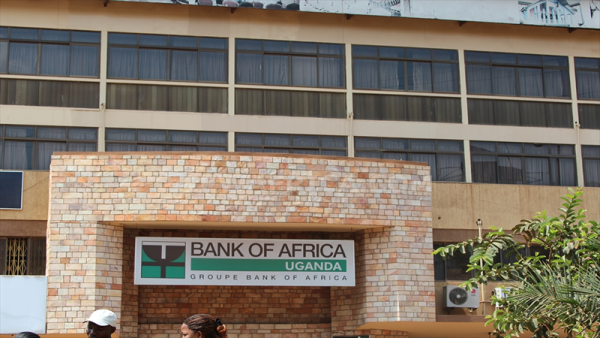
Bank of Baroda
Bank of Baroda Uganda (BBU), is a commercial bank in Uganda and a wholly owned subsidiary of Indian government owned banking and financial service company Bank of Baroda Uganda. BoB opened its first overseas branches Kampala, Uganda in 1953. The bank has been a leading global provider of business decisioning data and analytics for over 60 years. BBU is involved in all aspects of commercial banking, focusing on large corporations, small and medium enterprises, and individuals. BBU owns all of Baroda Capital Markets (Uganda) Limited, which was established in 1993. As of December 2019, BBU had total assets of USh 1,875,630,000,000 ($498,172,000), with shareholders’ equity of USh 394,895,000,000 (US$104,885,000).
Absa Bank Uganda Limited
Absa Bank Uganda Limited, formerly known as Barclays Bank of Uganda Limited, is a commercial bank operating in Uganda, licensed by the Bank of Uganda, the central bank and national banking regulator. The bank opened in 1927, with two branches in the capital city, Kampala, and one in Jinja, The bank is a subsidiary of Absa Group Limited, a financial services conglomerate, based in South Africa. The bank is primarily involved in meeting the banking needs of individuals, small and medium-sized businesses (SMEs), and large corporations. With the re-branding of Barclays Africa Group, in 2018, Absa Bank Uganda is a 100 percent subsidiary of Absa Group Limited. As of December 2020, the bank’s total assets were valued at UGX 3.543 trillion (approximately US$983.4 million), with shareholders’ equity of UGX 521.956 billion (approximately US$145 million).
Cairo International Bank
Cairo Bank Uganda Limited (CBUL), formerly known as Cairo International Bank (CIB), is a commercial bank in Uganda and a subsidiary of Egypt-based banking group, Banque du Caire Group. CBUL focuses on serving small and medium businesses (SMEs), educational institutions, non-governmental organizations and corporate entities. In 2020, the bank re-branded and turned its focus on meeting the banking needs of SMEs. As of December 2019 the total assets of Cairo Bank Uganda were valued at USh189 billion (US$51.4 million) with shareholders’ equity of USh52.3 billion (US$14.2 million).
Centenary Bank
Centenary Bank is a commercial bank in Uganda licensed by the Bank of Uganda. The bank was founded in 1983 as a credit trust, Centenary Rural Development Trust (CRDT). The bank became a fully licensed commercial bank in 1993. As of May 2016, Centenary Bank was the largest majority indigenous Ugandan commercial bank, a rank it still holds to date. The bank is a large financial services provider in Uganda primarily involved in the promotion of development through loans to rural farmers, processors of agricultural produce, among other services.
With 77 branches and 181 ATM’s country wide as well as various electronic channels, the bank continues to provide one of the widest spread services around Uganda. As of December 2020, the bank’s assets were UGX 4.499 trillion (US$1.27 billion), with shareholders’ equity of USh789.52 billion (US$222.78 million).
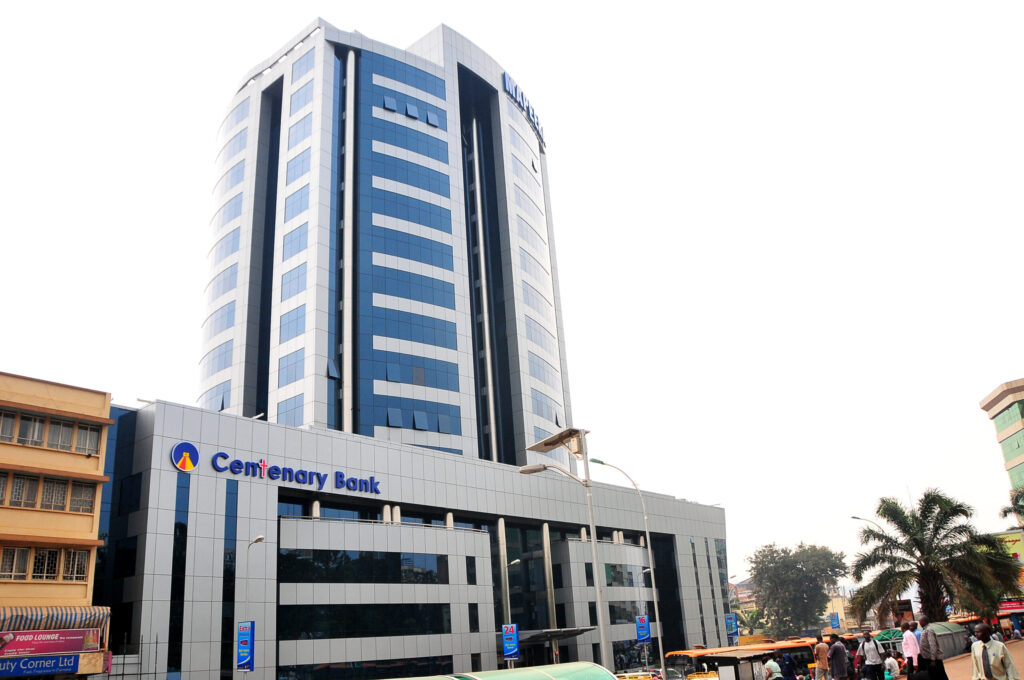
Housing Finance Bank
Established in 1967 as a housing finance company, Housing Finance Bank (HFB) continues to stand as a cornerstone in Uganda’s financial sector, specializing in providing tailored financial solutions for the housing industry. Housing Finance Bank has been a reliable partner for individuals and real estate developers alike, offering innovative mortgage products and related financial services. The bank is the leading mortgage lender in the country, with approximately 60 percent of all Ugandan mortgage accounts. As of December 2019, HFB had an asset base valued at USh912.48 billion (US$247 million), with shareholders’ equity of USh211.92 billion (US$57.3 million). On 31 December 2020, the bank’s assets were USh1.11 trillion (US$315 million). The bank made an after-tax profit of USh20.6 billion (US$5.84 million) in 2020. At that time, shareholders’ equity was USh250.1 billion (approx. US$70 million).
Citibank Uganda Limited
Citibank Uganda, is a commercial bank in Uganda operating as a wholly owned subsidiary of New York-based Citigroup. Citibank Uganda Limited was licensed as a commercial bank in Uganda on 27th August, 1999. The bank is a medium-sized international bank that focuses on meeting the banking needs of large corporate customers as well as of those individuals with high net worth. The bank is an active participant in the promotion of financial literacy in Uganda, especially in the country’s schools. As of December 2019, the bank’s total asset valuation was approximately USh990 (US$262 million). As of 31 December 2015, shareholders’ equity was about USh 155 billion (US$63.5 million).
DFCU Bank
A subsidiary of dfcu Limitied, dfcu Bank is a leading banking and financial services company operating in Uganda. It came into existence on 14th of May 1964 as a development finance institution. Over the years dfcu is associated in various sectors: transport, education, floriculture, agriculture, manufacturing and agro-processing. Currently, dfcu bank is a leading financial institute in Uganda. The bank exponentially grew after taking over Crane Bank which had been under the statutory management of the BoU because Crane’s liabilities exceeded its assets in 2017.
The acquisition included all customer deposit accounts and some loan accounts. The bank boosts of over 60 branches country wide, a move that has eased service delivery by the bank. As of December 2020, DFCU Bank had total assets of UGX 3.499 trillion (US$973.25 million), and shareholders’ equity of UGX 592.91 billion (US$165 million).
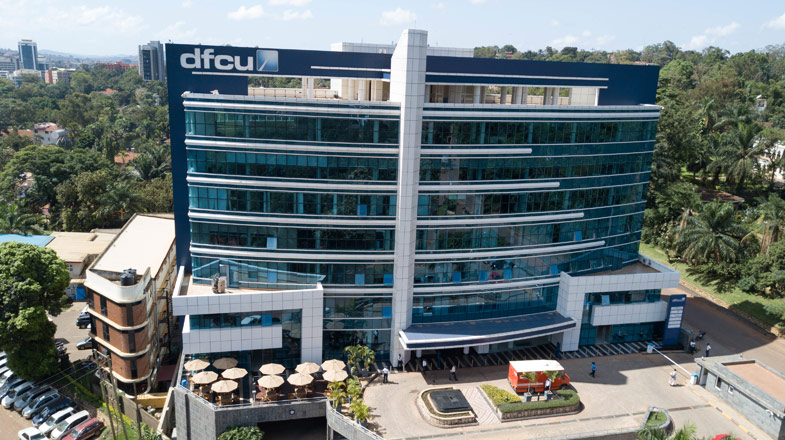
Diamond Trust Bank
DTB is an affiliate of the Aga Khan Fund for Economic Development (AKFED), the economic development arm of the Aga Khan Development Network, and has operated in the East African market for over 60 years. The back came into active service in 1945 as a community based finance house but later converted to a full commercial bank whose operations begun in 1997. DTB Uganda is a full-fledged commercial Bank with a network of 37 branches and 36 ATM locations in major Ugandan urban centers and still growing. Financial strength and strong heritage has positioned DTB to become a leading provider of financial services in Kenya, Tanzania, Uganda and more recently in Burundi. DTB is a strong promoter and supporter of regional business with specific focus on the Small and Medium Sized Enterprises facilitating the SME value chain including manufacturers, distributors and retailers. As at December 2018, the bank’s total assets were valued at about UGX 1.606 trillion (approximately US$438.574 million), with UGX 222.5 billion (approximately US$60.8 million) in shareholders’ equity.
Ecobank Uganda
Ecobank Uganda opened its doors to Uganda in 2009 as a full-service bank, providing wholesale, retail, investment and transaction banking services and a wide range of services. Ecobank Uganda is a subsidiary of Ecobank Transnational, a banking conglomerate headquartered in Lome, Togo. Today, Ecobank Uganda serves more than 24,000 customers across the country through a network of 14 branches. Ecobank offers a range of business products and services designed to help support and grow businesses and personal finances. As of 31 December 2014, the bank’s total assets were UGX:278.8 billion, with shareholders’ equity of UGX:46.9 billion.
Equity Bank
Equity bank (EBUL) is one of Uganda’s fastest growing commercial institutions with a network of 38 branches and 35 ATMs country wide. EBUL is a subsidiary of Equity Group Holdings Limited, a financial services conglomerate with headquarters in Kenya and subsidiaries in six countries of the African Great Lakes Region. Equity Bank Uganda Limited was created in 2008 when the Equity Group Holdings Limited purchased Uganda Microfinance Limited. The bank provides banking services to individuals and to small and medium business enterprises. The bank has also deployed a number of Alternate Business Channels to enhance its product and service delivery. As of December 2020, the bank’s total assets were evaluated at UGX1.99 trillion ($562.7 million).
GT Bank
Guaranty Trust Bank Limited (GTBank) is a multinational financial institution that provides individuals, businesses, private and public institutions across Africa and the United Kingdom with a broad range of market-leading financial products and services. It is one of the commercial banks licensed by Bank of Uganda, the central bank of that country and the national banking regulator. GT Bank (Uganda) was founded in 2008 as Fina Bank (Uganda), a subsidiary of the Fina Bank Group based in Kenya. GT Bank (Uganda) is a subsidiary of Guaranty Trust Bank (GTB), a Nigerian financial services conglomerate.
KCB Bank
Currently, KCB Uganda has 14 branches. The first branch of KCB Bank Uganda opened in Kampala, in November 2007. KCB bank Uganda is an ndigenous African brand that offers fully fledged universal banking products that are tailored for the African market which include world class infrastructure capable of facilitating one-branch banking in across border business environment. KCB Bank Uganda focuses on meeting the banking needs of individuals, corporate entities and small to medium enterprises. Currently, the bank has sixteen operational branches in Uganda.
Orient Bank
The bank was founded in 1993 by a group of businesspeople who were related by blood and marriage. Its steady growth over the last 20years can be attributed to its professional management and prudent Lending and investment policy. In November 2002 Orient Bank made another first in this economy by successfully out competing other Banks in taking over TransAfrica Bank Ltd., (TABL). Currently, the bank operates 15 branches country wide.
Stanbic Bank
The bank was founded in Uganda as the National Bank of India in 1906. SBU is a subsidiary of Stanbic Africa Holdings Limited, which is in turn owned by Standard Bank Group Limited. Stanbic bank has been Uganda’s leading bank for the past decade. With over 70 branches countywide, the back has the largest network of all commercial banks in Uganda. It offers a range of banking products including Internet banking, mobile money, SME lending, and debit and credit cards, among other products. SBU is the largest commercial bank in the country, by assets. As of 31 December 2020, the bank’s total assets were valued at USh8.58 trillion (US$2.387 billion). At that time shareholders’ equity was valued at USh1.243 trillion (US$346 million).
Standard Chartered Bank
Standard Chartered Bank Uganda Limited is an international Bank with a rich history spanning over a century of existence in the Ugandan market and has maintained a continuous banking presence in the country since its founding. Having opened its doors on 12th August 1912, the bank is the longest established Bank in the country. The multinational bank is headquartered in London, England. As of December 2020, it was the third largest commercial bank in Uganda by assets, with an asset base of UGX 3.8 trillion (US$1.072 billion), with shareholders’ equity of UGX 937 billion (US$264 million).
Post Bank Uganda
Founded in 1997, Post Bank Uganda has emerged as a cornerstone of the country’s financial landscape. With over two decades of experience, Post Bank Uganda has been catering to the banking needs of the nation, playing a pivotal role in shaping Uganda’s financial future. The bank received her tier-1 banking license in December 2021. Before that, Post Bank Uganda was classified as a non-bank credit institution, still under the supervision of the Bank of Uganda. As of December 2020, Post Bank Uganda had total assets worth UGX:745 billion (approx. US$193.3 million), with shareholders’ equity worth UGX:117.1 billion (approx. US$30.4 million). At that time customer deposits totaled UGX:507.2 billion (approx. US$131.6 million), and its loan book stood at UGX:454.9 billion (approx. US$118 million).
Opportunity Bank
Founded with a vision of empowerment, Opportunity Bank Uganda has solidified its position as a transformative force in the financial landscape since receiving its commercial license in 2019. The bank’s commitment to inclusivity and growth is exemplified through its range of financial services tailored to underserved communities. Opportunity Bank Uganda Limited is a Tier I Financial Institution (Commercial Bank), licensed by the Bank of Uganda, the central bank and national banking regulator. As of September 2019, the financial institution had total assets worth USh132 billion (US$36.3 million), with shareholders’ equity of about USh28 billion (US$7.7 million).



